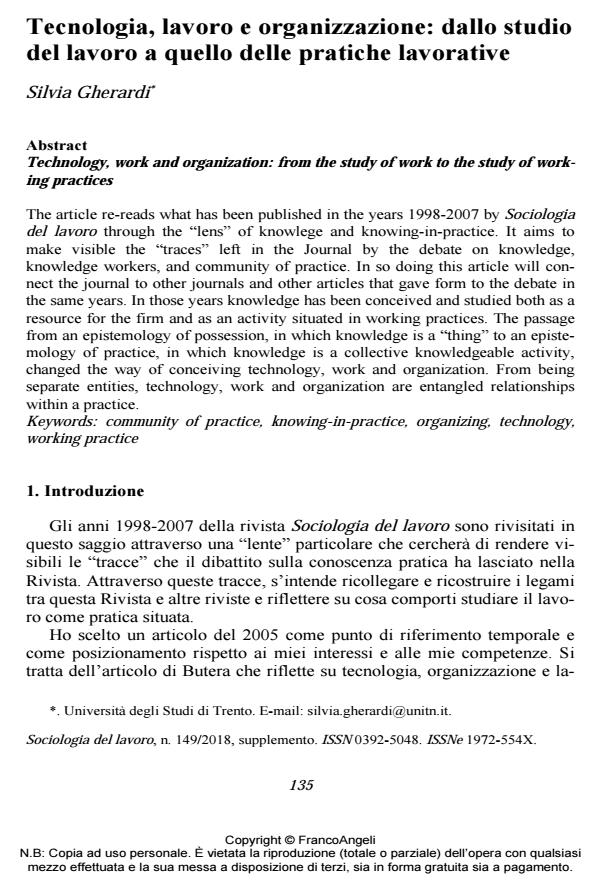Technology, work and organization: from the study of work to the study of working practices
Journal title SOCIOLOGIA DEL LAVORO
Author/s Silvia Gherardi
Publishing Year 2018 Issue 2018/149 suppl.
Language Italian Pages 16 P. 135-150 File size 192 KB
DOI 10.3280/SL2018-149S10
DOI is like a bar code for intellectual property: to have more infomation
click here
Below, you can see the article first page
If you want to buy this article in PDF format, you can do it, following the instructions to buy download credits

FrancoAngeli is member of Publishers International Linking Association, Inc (PILA), a not-for-profit association which run the CrossRef service enabling links to and from online scholarly content.
The article re-reads what has been published in the years 1998-2007 by Sociologia del lavoro through the "lens" of knowlege and knowing-in-practice. It aims to make visible the "traces" left in the Journal by the debate on knowledge, knowledge workers, and community of practice. In so doing this article will connect the journal to other journals and other articles that gave form to the debate in the same years. In those years knowledge has been conceived and studied both as a resource for the firm and as an activity situated in working practices. The passage from an epistemology of possession, in which knowledge is a "thing" to an epistemology of practice, in which knowledge is a collective knowledgeable activity, changed the way of conceiving technology, work and organization. From being separate entities, technology, work and organization are entangled relationships within a practice.
Keywords: Community of practice, knowing-in-practice, organizing, technology, working practice
Silvia Gherardi, Tecnologia, lavoro e organizzazione: dallo studio del lavoro a quello delle pratiche lavorative in "SOCIOLOGIA DEL LAVORO " 149 suppl./2018, pp 135-150, DOI: 10.3280/SL2018-149S10